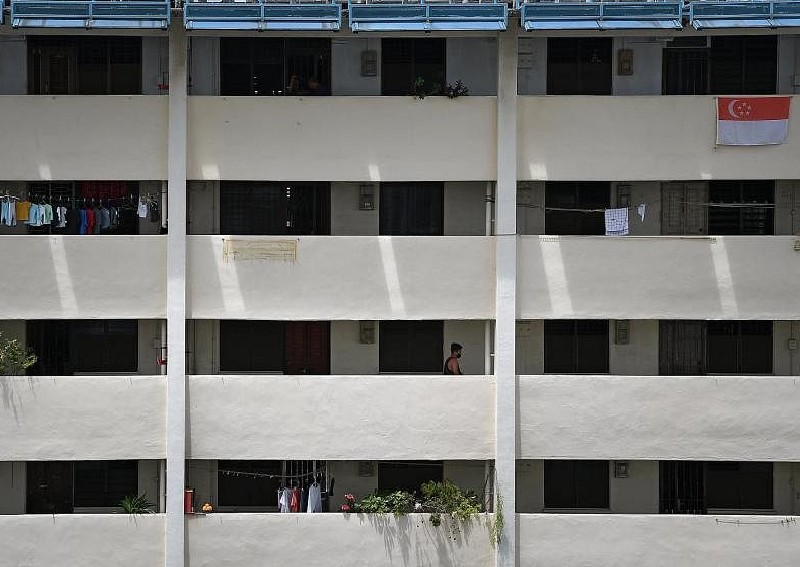Monkeypox FAQ: Does it only spread through sex? Is household transmission possible?

More monkeypox cases are expected to surface here in the weeks ahead as more than 18,000 cases have been reported in 78 countries, with the majority in Europe.
Singapore saw its first monkeypox case on July 6 and now has six local and five imported cases. None of them is linked, but contact tracing is ongoing.
The risk to the general public remains low, but more questions have surfaced as the outbreak – declared a global health emergency by the World Health Organisation (WHO) on July 23 – develops. The Straits Times answers some of them.
Q: Will heterosexual networks be safe from monkeypox?
A: “While currently, most cases globally are among MSM (men who have sex with men), there is no reason why it cannot spread into heterosexual networks, perhaps among commercial sex workers or the families of affected individuals,” said Professor Paul Tambyah, president of the Asia Pacific Society of Clinical Microbiology and Infection.
He said more cases are likely as Singapore has a highly mobile population with a large number of sexually active travellers.
“This has been shown through very detailed molecular work by clinician-researchers at NCID (National Centre for Infectious Diseases), who demonstrated new strains of HIV (the virus that causes Aids) emerging in Singapore from combinations of strains from Malaysia and Thailand and then moving back across the region,” he said, referring to a study published in 2011.
“That could well happen with monkeypox, although its mutation rate as a DNA virus is likely to be a lot slower than HIV.”
As the size of the outbreak grows in other countries, more imported cases can be expected here, and there is a chance that they may spread monkeypox to their close contacts in Singapore, said Associate Professor Hsu Li Yang, an infectious diseases expert and vice-dean of global health at National University of Singapore’s Saw Swee Hock School of Public Health.
“At the same time, because we are still seeing sporadic cases with no known links, it seems evident that local transmission of the virus is still occurring.”
Currently, Europe accounts for more than 70 per cent of monkeypox cases.
Q: Does monkeypox spread only through sex?
A: “One of the main modes of exposure for this particular illness is through direct contact… skin-to-skin contact, possibly even face-to-face contact exposure to droplets or virus that may be in the mouth. Many people have lesions in the mouth,” said Dr Rosamund Lewis, the WHO technical lead on monkeypox.
She added that household transmission may begin to occur now.
“In addition to the transmission through sexual contact, monkeypox can be spread in households through close contact between people, such as hugging and kissing, and on contaminated towels or bedding,” said WHO director-general Tedros Adhanom Ghebreyesus at a press conference on Wednesday (July 27).
At the same conference, Dr Lewis said some people have been exposed to monkeypox in a household setting, both in countries where this disease has long been known and now in newly affected countries.
Q: Have children been affected by monkeypox in this outbreak?
A: The United States confirmed two cases in children recently, while Dr Lewis has said that globally, some 81 children under the age of 17 were reported as having been infected.
Not every child who contracts monkeypox will develop the severe disease but there is a preponderance of children, pregnant women and immunocompromised people among those who do develop severe disease, she said.
Q: How many people become very ill with monkeypox?
A: Most cases recover without treatment, but for many people, the disease can be very unpleasant. Dr Tedros said at the press conference that about 10 per cent of the cases are admitted to the hospital to manage the pain caused by the disease.
Prof Tambyah said almost all the cases have been mild.
“Hospitals are full right now and I think it would be most appropriate for monkeypox cases who need to be isolated to be looked after in some of the community care facilities – perhaps the old one at Pasir Ris could be reactivated,” he said.
Q: Is a rash or blister the first sign of monkeypox?
A: Two doctors quoted in a July 24 WHO Europe release said they found that the cases they saw did not always have the rash that is considered the typical symptom of monkeypox.
The first clinician has seen people with anal, genital and oral ulcers or with no visible ulcers, and swollen lymph nodes, while the other clinician said some patients had a fever, inflammation of their colon and rectum areas, while others had blister-like lesions on their chin, chest and stomach.
WHO said symptoms include one of the following:
- Rash, spots, ulcers, or blister-like lesions anywhere on the body, but often in the genital area;
- Swollen and painful lymph glands;
- Fever, headache and muscle aches, chills or exhaustion.












Leave a Reply